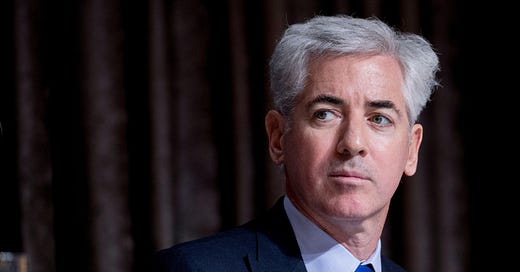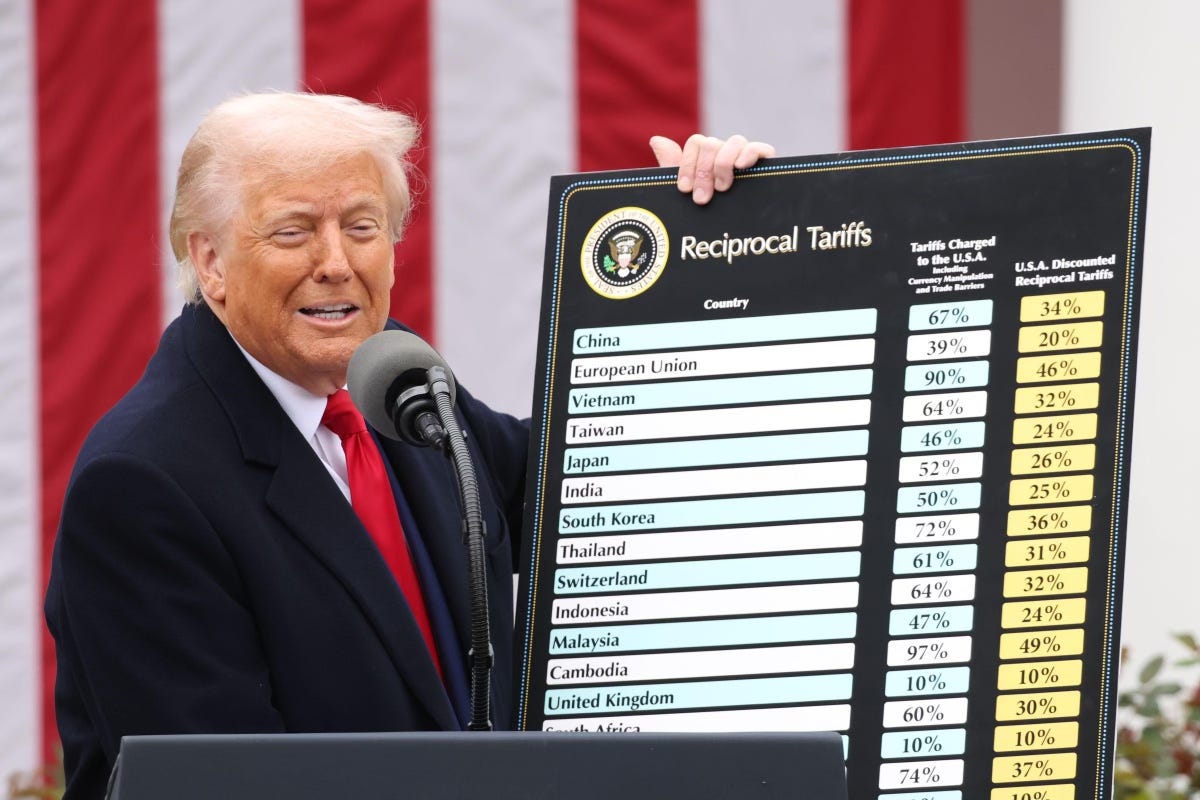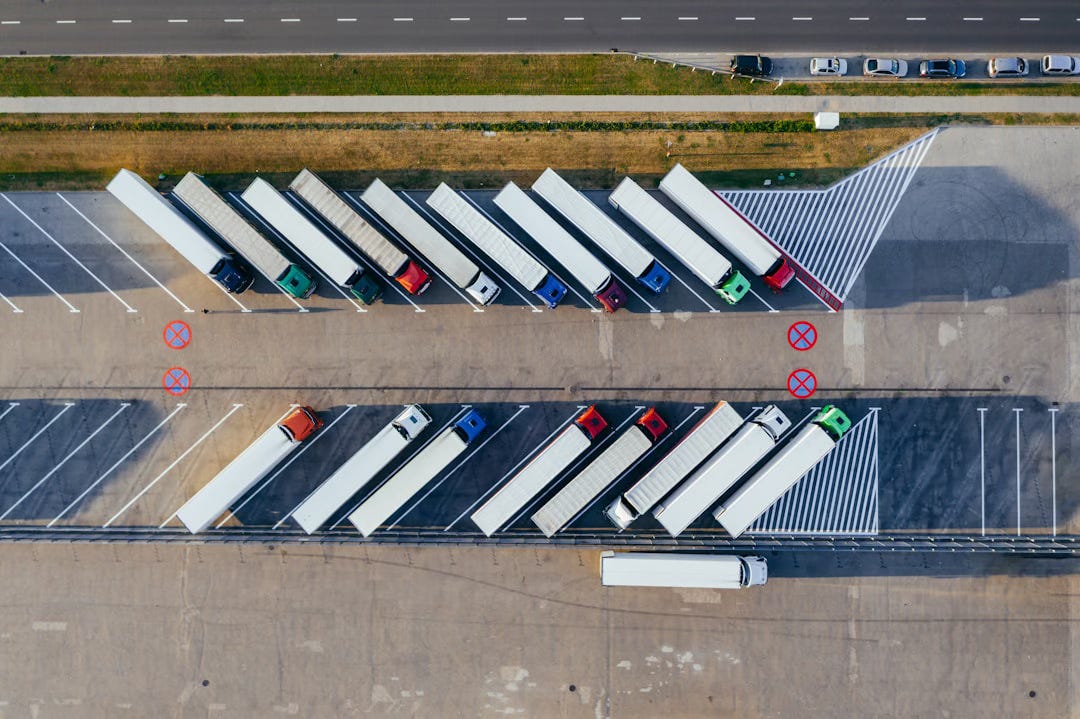
Donald Trump has raised the trade war stakes once again this evening with an extraordinary new threat that could bring the tariff rate on some Chinese goods to 104 per cent.
If Beijing does not withdraw its 34% retaliatory tariffs on the US, Trump claimed he would hit it with an additional 50 per cent tariff.
It seems the US President is in no mood to heed to the warnings of even his key Wall Street backer.
As a market meltdown continues to erase trillions in value from global stocks, Wall Street titan, Bill Ackman, has urged the US President to pause his sweeping set of tariffs or risk "a self-induced, economic nuclear winter".
Ackman, the 58-year-old billionaire founder of Pershing Square hedge fund management company, is demanding Trump agrees to “a 90-day timeout” on implementing any tariffs, to allow countries time to renegotiate their trading relationships with the US.
Ackman became a high-profile supporter of Trump in July 2024. At the time, his switching allegiance - having previously backed the Democrats - was considered a major electoral endorsement from the world of US business.
Now, the the influential hedge fund manager has taken to social media to warn: “I am stating loud and clear that I strongly believe launching tariffs on April 9th against the entire world — massively in excess of what we are being charged — is a mistake”.
Ackman also said on Friday that he wouldn’t be surprised if Trump announced a delay in the implementation of his tariffs on Monday.
But this now appears to have been wishful thinking on Ackman’s part.
Global markets plunged again today, after Trump dismissed rumours of a 90-day pause on tariffs as “fake news”, before threatening to ramp up tariffs on Beijing once again.
Asian stocks from Shanghai to Tokyo have plunged to levels not seen in decades today, with Hong Kong's Stock Exchange closing down 13% in its worst trading day since 1997 and the Taiwan Weighted Index losing 9.7 per cent - its biggest drop on record.
Share prices have dropped dramatically in Europe and the US too, while the UK’s FTSE 100 was down by 6 per cent at one point today - its steepest fall in five years.
Is Trump reaping any rewards from tearing up the free trade order of the last 80 years?
As Ian Stewart writes today, one of Trump’s key tariff aims is to encourage firms to set up in the US and to stimulate domestic manufacturing output. On this front, the administration can point to some early successes: Apple, Hyundai, Johnson & Johnson and Siemens have all announced plans to expand operations in the US in recent weeks.
Aside from this, any potential upsides to Trump’s reckless tariff announcements are, at least so far, difficult to come by.
JPMorgan has raised the probability it assigns to a US - and global - economic downturn from 40% to 60%, and forecast that the US will fall into recession in the fourth quarter of this year.
What’s more, as Stewart points out, the dollar has weakened since so-called liberation day, which “contradicts the received wisdom that tariffs tend to support the currency of the country that applies them.”
What now?
Various Wall Street analysts insist the market could rebound if Trump starts cutting deals with various nations to improve terms of trade.
And, according to Kevin Hassett, Trump’s director of the National Economic Council, over 50 countries have already approached the White House in a bid to start trade talks.
The UK included. Keir Starmer insists that London and Washington have been discussing a deal "intensely" over the last few days.
Iain Martin writes in his latest newsletter that the UK government is right not to join in the tariff tit-for-tat and to calmly focus on negotiations instead.
Of course, one irony of this whole saga, he also points out, is that Trump’s chaotic trade war may have actually created more favourable conditions for a substantial US-UK trade deal.
Caitlin Allen
Deputy Editor
ON REACTION TODAY
Iain Martin
Stick with free trade - negotiate, don’t retaliate, start praying
Ian Stewart
Everything depends on whether higher tariffs are here to stay
ALSO KNOW
UK relaxes green rules for car industry - The government has announced a relaxation of electric vehicle (EV) sales targets to help the car industry in the face of trade tariffs from the US. While the ban on selling new petrol and diesel cars will still come into effect in 2030, manufacturers will now have more flexibility on annual targets and face lower fines.
Birmingham bin strike - Rubbish is continuing to pile up on the streets of Birmingham as a strike over pay by the city's bin workers enters its fifth week. A major incident has been declared amid rising concerns of risks to public health, with uncollected bin bags attracting rats.
Labour could cut quangos as early as this week - Cabinet minister Pat McFadden is drafting legislation that could abolish a swathe of public bodies as part of the government’s plans to restructure the state. The roles of 40 Home Offices bodies are being considered as part of McFadden’s Whitehall review, reports The Times.
US measles outbreak - A second child has died from measles in western Texas, as an outbreak of the highly contagious virus continues to grow in the southern US state. The school-aged child was not vaccinated, had no underlying health conditions and was in hospital suffering complications from measles. Across the whole of the US, more than 600 cases of measles have been recorded so far this year, more than double the 285 cases recorded last year.
Former MI6 boss backs conscription - Alex Younger warned today that the UK may need to introduce "conscription" to defeat Vladimir Putin. He suggested the government should have the power to conscript Britons to “give their service one way or another” in the face of intensifying international threats.
FIVE THINGS
Maryland man's erroneous deportation to an El Salvador prison “shocks the conscience”, says US District Judge in ABC News.
War on the Rocks on the power of nuclear deterrence without nuclear weapons.
Police officer will not face charges over e-bike crash that killed Cardiff teenagers, reports The Guardian.
Gerald Malone in EI on John Law, the man who blew up the French economy.
The New Statesmen on Keir Starmer’s battle with globalisation.















